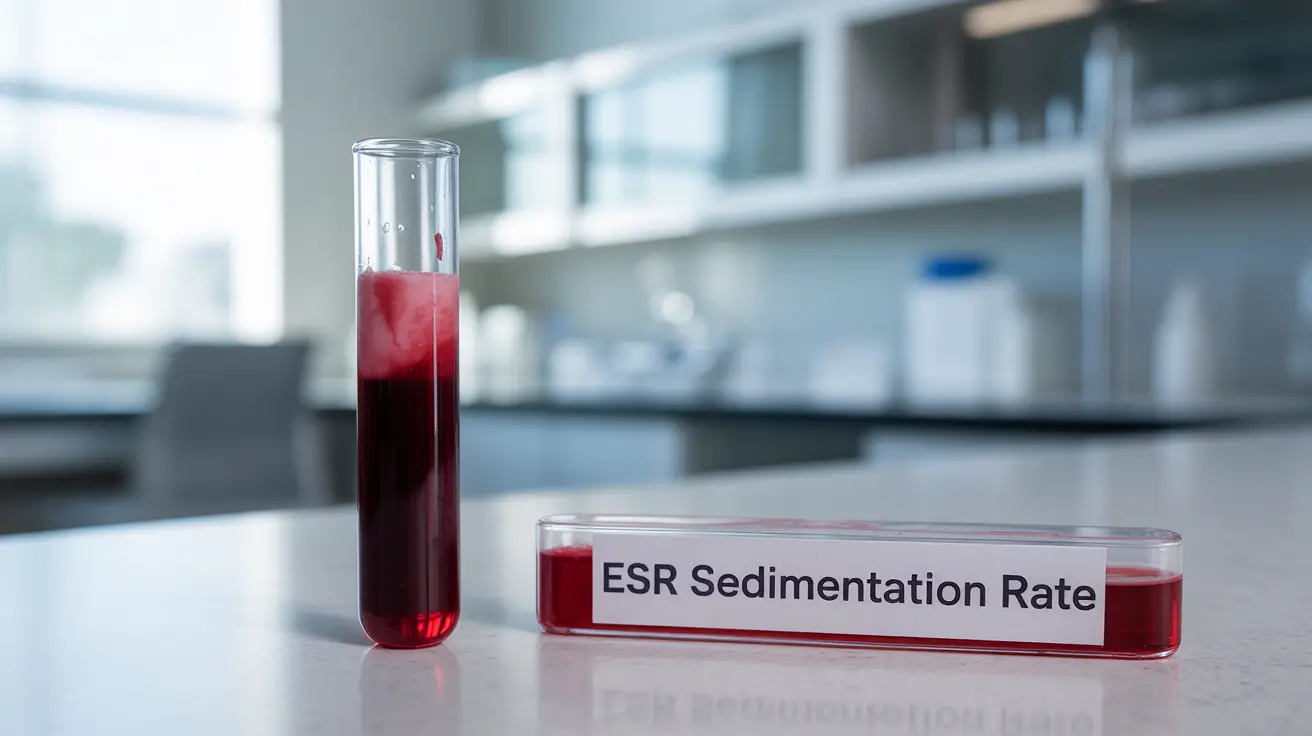An ESR (Erythrocyte Sedimentation Rate) blood test is a valuable diagnostic tool that helps healthcare providers detect inflammation in your body. This simple yet informative test measures how quickly red blood cells settle at the bottom of a test tube, providing important clues about various inflammatory conditions and helping guide treatment decisions.
Whether you're preparing for an ESR test or trying to understand your results, this comprehensive guide will explain everything you need to know about this important diagnostic tool, including what it measures, what the results mean, and how it helps monitor various health conditions.
How the ESR Blood Test Works
The ESR blood test works by measuring the rate at which red blood cells (erythrocytes) settle to the bottom of a specialized test tube over a specific time period, usually one hour. When inflammation is present in the body, proteins in the blood cause red blood cells to stick together and fall more quickly, resulting in a higher ESR value.
Normal ESR values typically vary by age and gender:
- For men under 50: 0-15 mm/hr
- For men over 50: 0-20 mm/hr
- For women under 50: 0-20 mm/hr
- For women over 50: 0-30 mm/hr
Common Reasons for ESR Testing
Healthcare providers may order an ESR blood test for several reasons:
- To investigate unexplained symptoms like fever, weight loss, or joint pain
- To monitor existing inflammatory conditions
- To track the effectiveness of treatments for inflammatory diseases
- To help diagnose specific conditions when combined with other tests
- To screen for underlying inflammation in certain medical situations
Interpreting High ESR Results
An elevated ESR result can indicate various conditions, including:
- Autoimmune disorders (such as rheumatoid arthritis or lupus)
- Infections (both acute and chronic)
- Certain types of cancer
- Inflammatory bowel disease
- Temporal arteritis
- Polymyalgia rheumatica
However, it's important to note that an elevated ESR alone cannot diagnose a specific condition. Your healthcare provider will consider your ESR results alongside other tests, symptoms, and medical history to make an accurate diagnosis.
Preparing for Your ESR Blood Test
The ESR blood test requires minimal preparation. However, there are a few important considerations:
- Inform your healthcare provider about all medications you're taking
- Discuss whether you need to fast before the test
- Wear comfortable clothing with easy access to your arms
- Stay well-hydrated before the test
- Schedule your test at a convenient time that doesn't interfere with your daily routine
ESR Test in Disease Monitoring
One of the most valuable applications of the ESR blood test is monitoring disease activity and treatment effectiveness in chronic conditions. Regular ESR testing can help healthcare providers:
- Track inflammation levels over time
- Adjust medication dosages when needed
- Detect disease flares early
- Evaluate treatment response
- Make informed decisions about continuing or changing treatments
Frequently Asked Questions
What is an ESR blood test and what does it measure?
An ESR blood test measures the rate at which red blood cells settle to the bottom of a test tube over one hour. This measurement helps detect inflammation in the body, with higher settling rates indicating more inflammation.
What conditions can cause a high ESR result?
High ESR results can be caused by various conditions including autoimmune disorders, infections, certain cancers, inflammatory bowel disease, and other inflammatory conditions. The test itself doesn't identify the specific cause but alerts healthcare providers to the presence of inflammation.
How should I prepare for an ESR blood test?
Preparation for an ESR blood test is minimal. Inform your healthcare provider about any medications you're taking, and ask if you need to fast. Wear comfortable clothing that allows easy access to your arms, and stay well-hydrated.
Can an ESR test diagnose specific diseases or is it only for detecting inflammation?
An ESR test alone cannot diagnose specific diseases. It serves as a general marker of inflammation and must be interpreted alongside other tests, physical examinations, and your medical history to determine the underlying cause.
How is an ESR test used to monitor autoimmune diseases and treatment effectiveness?
Healthcare providers use ESR tests to track inflammation levels in autoimmune diseases over time. Regular testing helps evaluate how well treatments are working, detect disease flares, and guide decisions about medication adjustments. It's particularly useful in monitoring conditions like rheumatoid arthritis and lupus.




